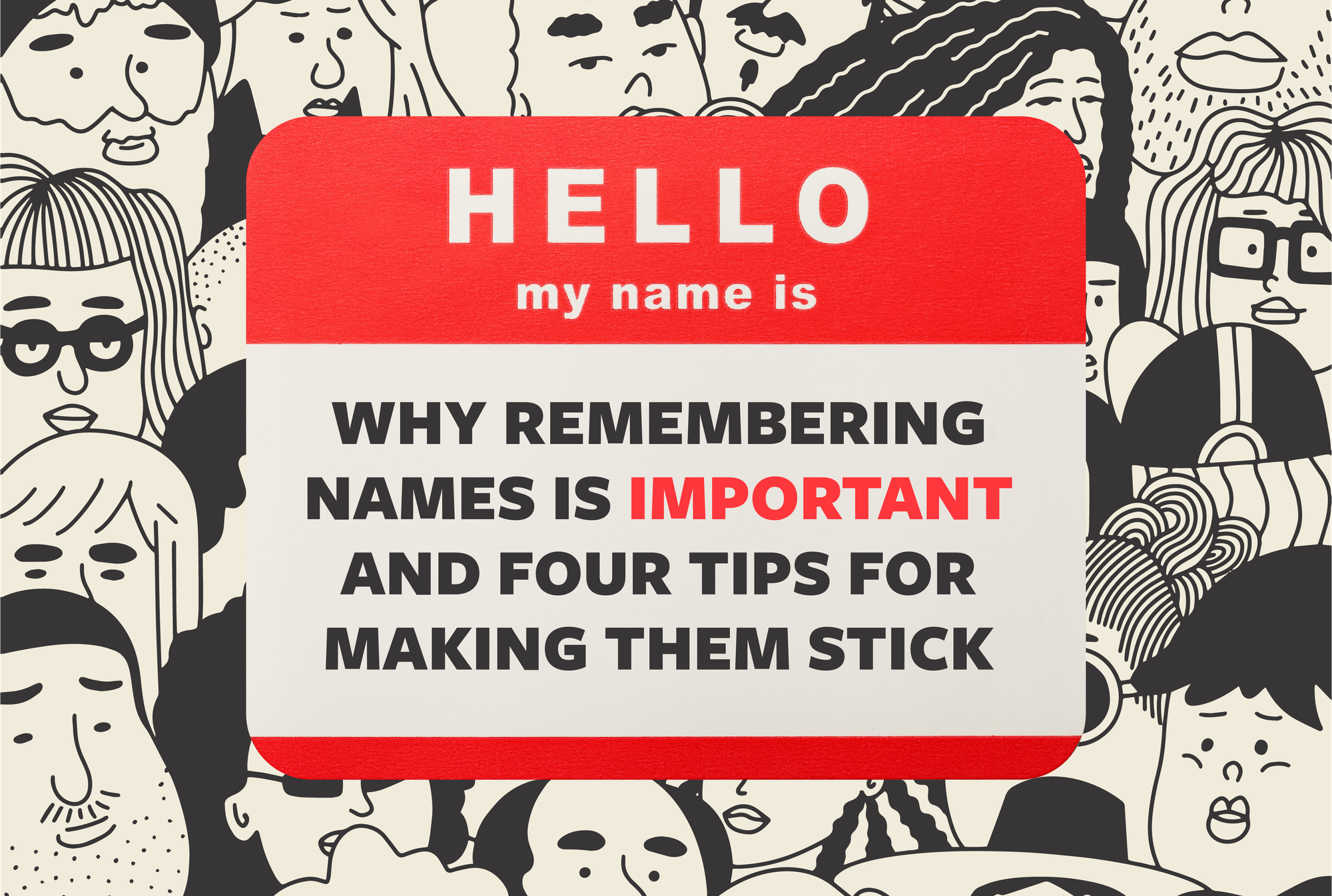"Hi, my name is ____": Why remembering names is important and four tips for making them stick
“Remember that a person’s name is to that person the sweetest and most important sound in any language.” Communication guru Dale Carnegie hit the nail on the head when he penned those words almost 90 years ago.
Remembering people’s names is a not-so-common courtesy. It validates that they matter and are memorable. But remembering names isn’t easy for everyone, especially when you’re trying to build a network of hundreds of people. Here are a few strategies from communication pros for embedding those names deep into your gray matter:
1. Imagine the name printed on the person’s forehead. While talking with a new acquaintance, think what it would look like if his or her name was printed right across the forehead. This strategy works for visual learners, which amounts to about 65 percent of the population, according to the National Institutes for Health.
2. Think of someone else with the same name and mentally associate these people with each other. If you’ve just met a woman named Jen, take a moment to mentally map her name next to Jen Smith, Jen Brown, and Jen Shaw.
3. Repeat the person’s name a few times in that initial conversation. This doesn’t have to be awkward. If you are with a partner or friend, introduce the two people by name. At the end of the conversation, say something like, “It was so nice to meet you, John.” And if you aren’t sure of a person’s name, don’t let the convo wrap up without saying, “Remind me of your name one last time.” It’s much less awkward to ask this in the first conversation than the next time you meet.
4. Don’t forget to review. Carnegie writes that Napoleon the Third (nephew of the great Napoleon) often bragged that he could recite the name of every person he had ever met. His strategy was this: If he didn’t hear the name clearly, he asked for it to be repeated. If the name was unusual, he asked for the spelling. Then during his brief introductory conversation, he repeated the name multiple times and mentally associated the name with the person’s facial features. But this last part is key: The next moment Napoleon was alone, he jotted down the name and concentrated on it until it was set in his mind.
Nowadays we rely on phones to do the remembering for us; once we enter a new contact, we often forget it because we know we can look it up at a moment’s notice. But this does not serve us well when we see someone unexpectedly and can’t quite dredge his or her name out of our craniums.
So a modern-day twist on Napoleon III’s method might be this: During a dull moment, scroll through your contact list. Picture the person when you read his or her name. This is especially helpful right before a major event when you know you’ll see scores of people and want to connect with them. You’ll be surprised how much this reinforcement helps you keep names at the ready.
Carnegie said, “Most people don’t remember names, for the simple reason that they don’t take the time and energy necessary to concentrate and repeat and fix names indelibly in their minds. They make excuses for themselves; they are too busy.” But that excuse will not help you forge relationships or brighten the day of another. By adopting strategies that work, you too will soon be able to recall a hundred names—and you will have made true friends along the way.
Sidebar: Trying to build your communication skills? Pick up (or reread!) Dale Carnegie’s How to Win Friends and Influence People. Published in 1936, this book has sold more than 15 million copies worldwide.

